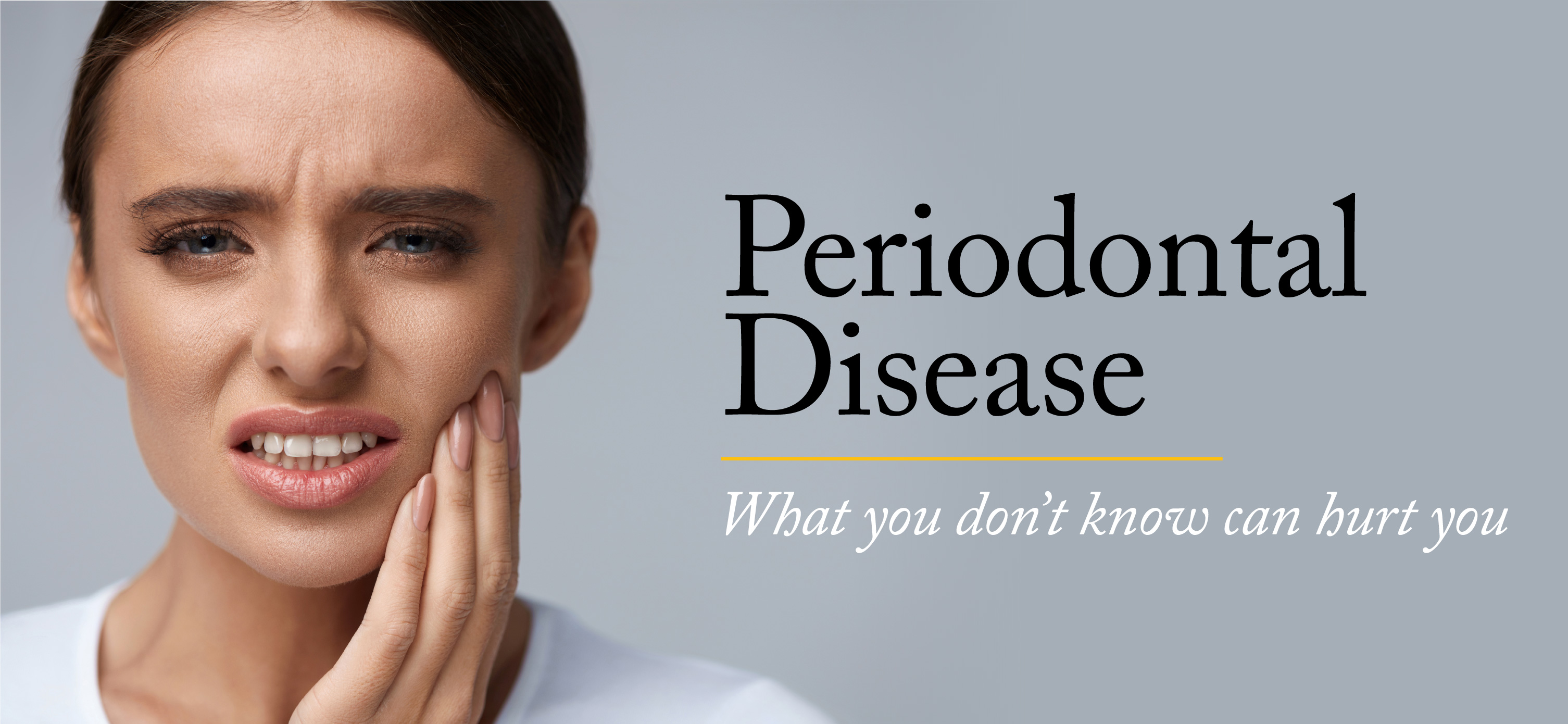
What Is It?
Periodontitis is a term used to describe a group of conditions that involves inflammation of the gums and other structures that support the teeth. Periodontitis is caused by bacteria found in dental plaque and often, but not always, starts as gingivitis.In trying to eliminate the bacterial infection, your body produces substances that destroy the structures that hold the teeth in the jaw, including the periodontal ligament and underlying bone. As this process continues, the teeth become loose. Pockets form between the teeth and gums, allowing more bacteria to accumulate. Left untreated, periodontitis can result in tooth loss.
Periodontitis usually is relatively painless. The onset of significant pain may signal the development of an abscess.
Older adults are more likely to have periodontitis.
People who smoke are four to seven times more likely than nonsmokers to get periodontitis. Smoking may impair the body's defense against bacteria.
Symptoms
Symptoms include:- Reddened, swollen or bleeding gums
- Receding gums
- Loose Teeth
- Bad breath
- An unpleasant taste in the mouth
Diagnosis
Your Lakewood dentist will examine your mouth, paying special attention to your gums and teeth. If you have periodontitis, a dental probeinserted between your tooth and your gums will penetrate deeper than it normally would.Your dentist may also test for loose teeth. Teeth have a normal range of mobility, but in people with periodontitis, the teeth are looser due to the destruction of the fibers and bone supporting the teeth.
Your dentist may also order X-rays to help diagnose periodontitis. These can be compared with older X-rays to see if changes have occurred in your teeth and gums.
Expected Duration
Unlike gingivitis, periodontitis cannot be completely reversed. In some situations, the supporting fibers and bone that have been lost can be regenerated. In most cases, however, particularly in advanced stages of the disease, the effects are permanent. However, treatment and improved oral hygiene at any stage can improve the health of your gums and prevent further destruction.Prevention
Daily brushing and flossing (morning and night) and regular visits for professional cleaning can help prevent periodontitis or allow you to have it treated during its earliest stages. If you smoke, quitting will reduce your risk significantly.Treatment
Treatment depends on how severe your periodontitis is. Dentists classify the disease as mild, moderate or severe.Mild periodontitis is usually treated first with a thorough cleaning called scaling and root planing. Scaling removes plaque or calculus that has accumulated on the crowns of your teeth (the parts that show) and slightly below the gum line. Root planing has two purposes: 1) to remove plaque or calculus from the roots of your teeth and 2) to smooth the roots of the teeth, making it more difficult for bacteria to cling to them. This, combined with good oral hygiene at home, often is enough for successful treatment.
Moderate periodontitis may require more than scaling and root planing. Typically, your dentist will scale and root-plane your teeth. If this does not take care of the problem, he or she may decide that you need surgical treatment. Surgery can involve reshaping the gums to fit the teeth (resective surgeries) or encouraging lost bone to regrow (regenerative surgeries). Your dentist will decide whether you will need surgery and what type you need.
Severe periodontitis likely will require surgical intervention and, in some instances, antibiotics. At this stage of disease, tooth loss is a distinct possibility.
No matter which treatment you undergo, you should start a strict regimen of brushing and flossing to help restore your teeth to health.
When To Call Your Lakewood Dentist
The best course of action is to get regular dental checkups. If you have persistent bleeding or swelling of your gums or notice loose teeth, call your dentist.Prognosis
The outlook is good if the disease is recognized early and treated aggressively. Once bone loss occurs, the prognosis depends on the severity of the loss. Quitting smoking is very important for periodontal therapy to be successful. Lifelong maintenance will be required once the disease is controlled.- 10:57 AM
- 0 Comments

